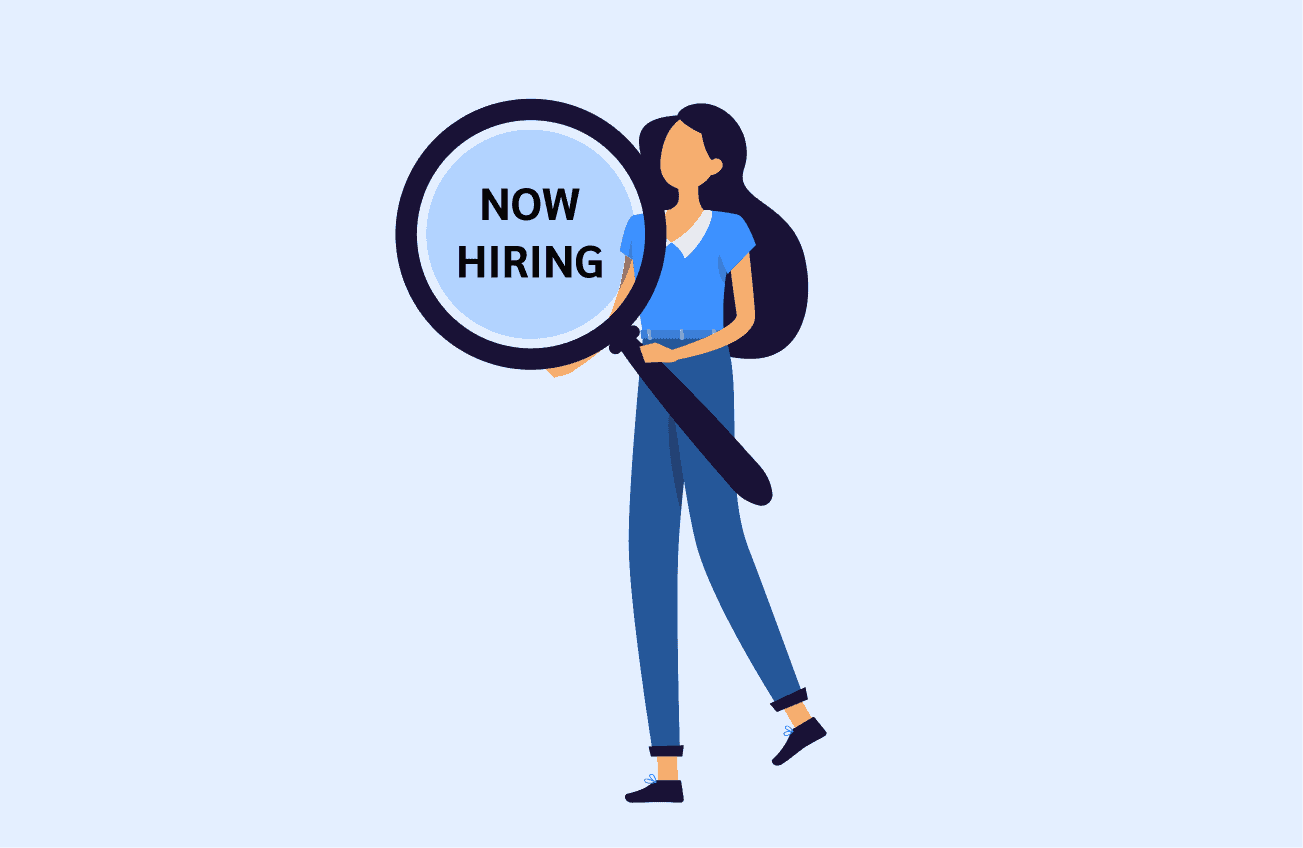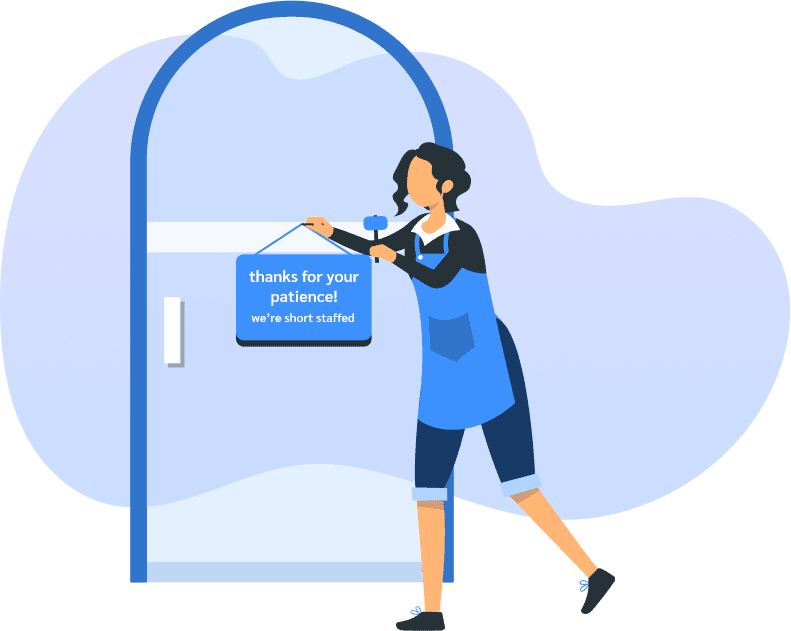20 Jul

Five major ways staffing shortages are impacting event planners
The good news is that in-person events seem to be back for good in 2022. The bad news? Event planners might not have the staff to handle them.
Since March 2020, when a wave of major conference and event cancellations served as an early warning of just how much COVID-19 would impact the world, event planners have scrambled to adapt. From the emergence of virtual and hybrid events, to creative vendor ideas, to surprising partnerships, the events industry as a whole fortunately managed to come through the worst of the COVID-19 pandemic banged up, stretched, but still on its feet.
Now, as the third summer since the pandemic began gears up, in-person events have fortunately returned to being the norm. But like other industries, from education to food service, event profs and vendors are struggling with staffing shortages that don’t seem likely to resolve anytime soon. Unfortunately, just as the events industry is finding its footing again, these staffing shortages are causing some major headaches and curveballs for event planners.
For both event professionals and folks planning an event in the near future, it’s worth knowing what kind of challenges staffing shortages might cause you as you set up your event management software, send out invitations, book vendors, and more. Here are three of the most noticeable examples of how staffing shortages in the event industry are playing a role right now.
Challenge #1: Delays
So much of event planning is about being able to anticipate – guest list sizes, budgets and expenditures, venue and vendor availability, and so on. Unfortunately, staffing shortages are having a cascading effect on being able to anticipate effectively. For example:
- Various studies have estimated that nearly half of hospitality industry workers have already or are planning to quit. Cutting staffs in half impacts the ability for venues to provide services, vendors to provide full product lists, and more, limiting your ability to do everything from finalize a menu to rent the right number of folding chairs in advance.
- Venues and vendors need more time to figure out their own staffing calendars (and fill open positions), meaning delayed response times from vendors to even general requests.
- A more unanticipated effect of staffing shortages is on potential vendors or attendees for corporate events or trade shows, who may not be able to confirm their attendance while figuring out their own staffing issues.
While these delays are often unavoidable for event planners in at least some respect, you can help yourself by structuring your event planning to accommodate them. Be flexible with online RSVP return dates, try to work with vendors who will offer refundable deposits, consider flexible dates for your event in case one doesn’t work out, and more. The more you anticipate unexpected delays, the more likely it is that you have a workaround built in to your own planning to lessen the hassle.
Challenge #2: Rising Costs
As staffing shortages have naturally led to significant raises in employee salaries, benefits, and hourly wages, the associated rise in costs to vendors is being passed along to customers and event planners. Beyond front-line staff like waiters, venue staff, and others who are being priced up to attract candidates for openings, there are other secondary staffing shortage impacts that are also leading to rising costs for event hosts:
- Shipping costs and shortages among truck drivers, longshoreman, and more skilled laborers is leading to cost increases for inventory for caterers, linen suppliers, and more.
- Aside from inventory, equipment rentals and other event elements that will need to be delivered and picked up from an event are dependent on delivery truck drivers who, you guessed it, are short staffed these days.
- Rising event insurance costs are also somewhat impacted by staffing shortages. From security services for major events or concerts, to greater liability coverage due to anticipated staffing shortfalls, event hosts can expect to pay heftier premiums than before.
This has two impacts for event planners:
- Profit margins are not likely to be as expansive as previous iterations of an annual event might indicate. You should forecast your profit and expenses accordingly, to avoid being stunned by cost overruns that make your event a money loser.
- Quotes to customers also need to be thought out and reworked with rising costs in mind. This might involve over-quoting to begin the process, or notifying a customer that costs may change if staffing shortages or supply chain issues lead to a sudden increase in cost from a vendor or venue.
Challenge #3: Event Experience
Naturally, after two years of cancelled events and virtual experiences, event attendees are naturally excited for the return of many in-person events. However, these attendees are often using the last “normal” event as a frame of reference, which can lead to disappointment if staffing shortages lead to decreases in offerings, services, or event experiences. While you can try to avoid this in event planning by not overstretching your means, the reality is that setting up event attendees for potential headaches or asking for patience due to staffing shortages honestly and in advance can help avoid disgruntled event attendees. Be clear and realistic with your customers and guests ahead of time – you’ll find that people are more likely to cut you some slack if they understand the extent of staffing shortages and the limitations they might be causing you as an event planner, event venue, or vendor.
Challenge #4: Employee Retention
For event profs and vendors who are navigating current staffing shortages and simply trying to make things work from day to day, the stress and frustration can seem daunting. However, one thing that can help anyone managing staff in the event industry is to be proactive about incentivizing and retaining staff. With many workers in many industries making shifts in their careers to jobs that offer greater flexibility, time off, and freedom to relocate, event profs and vendors must work with employees to determine reasonable but competitive staff incentive packages to lessen the impact of staffing shortages that can severely impact the ability to host or properly serve events. While this might involve some significant cost increases in the form of rising wages, better benefits, or adding more staff to cover the same number of hours handled by a single employee in the past, it should be considered a long-term investment. Retaining trained staff can not only help ensure good event experiences for event planners, customers, and attendees alike, but also reduce the constant chaos of trying to hire and train new staff and compete for those bodies with other desperate vendors.
Adam Hausman co-founded RSVPify in 2013 and has been passionate about event tech and ticketing software ever since. Also founder of Greenlight Growth Marketing, he holds degrees from Indiana University (BA English/Psychology 2008) and the University of Illinois-Chicago (M.Ed. Secondary Education 2012). He lives in Maine with his wife, 2 kids, and 2 annoying cats.











Adam Hausman